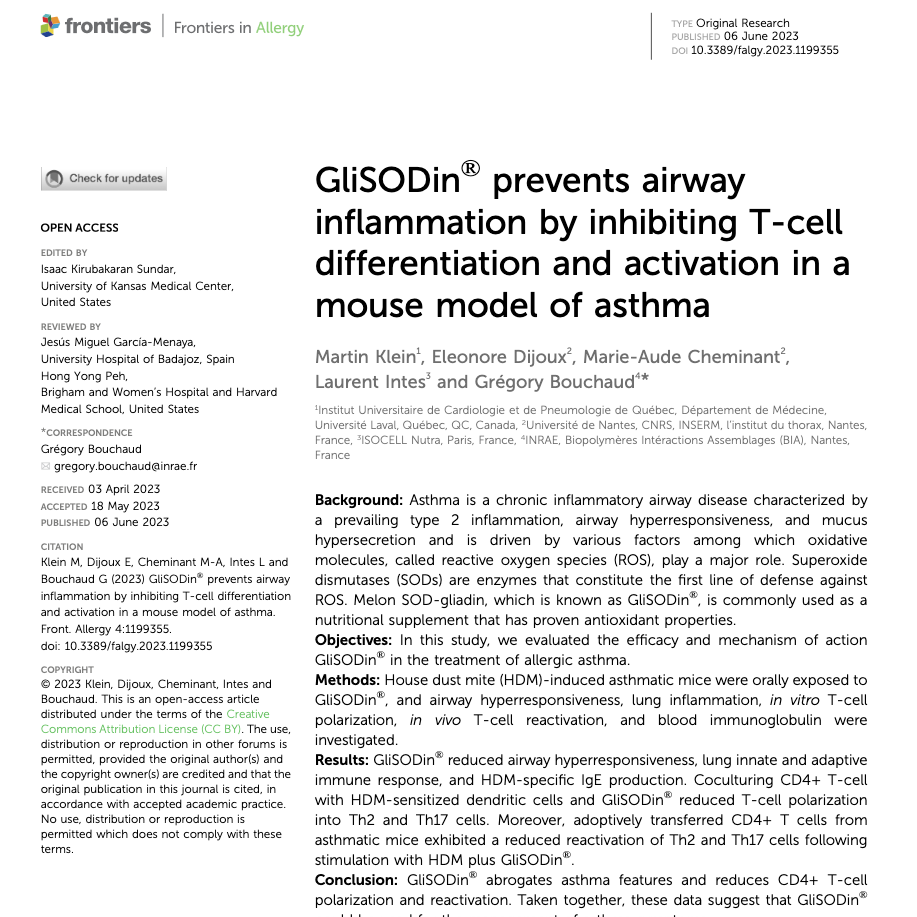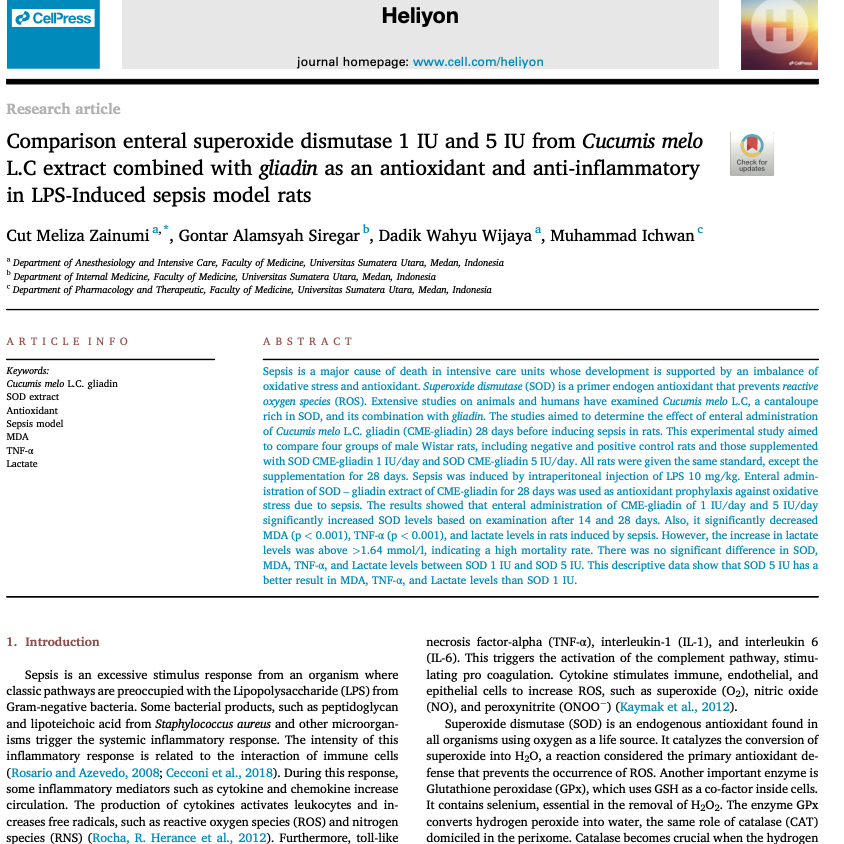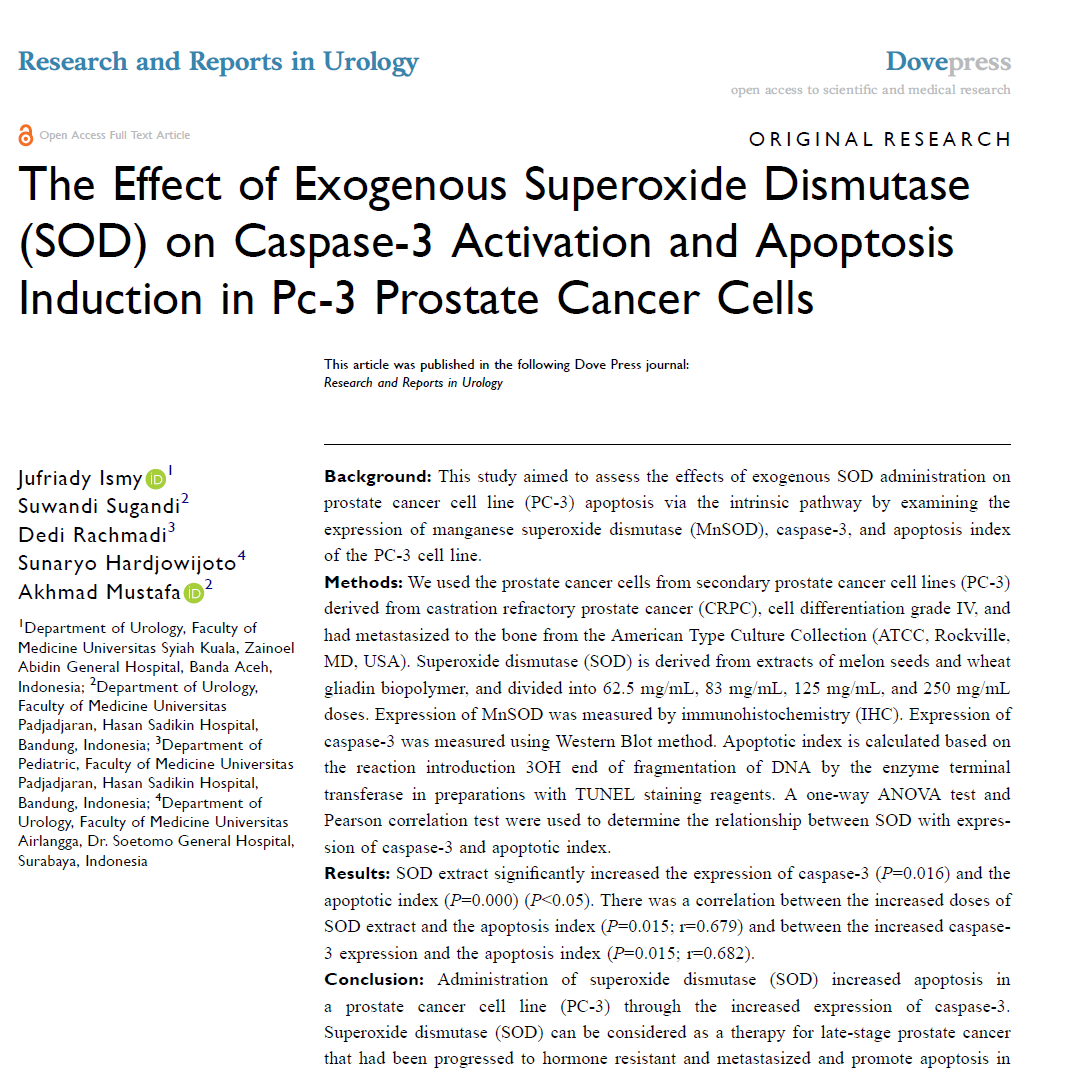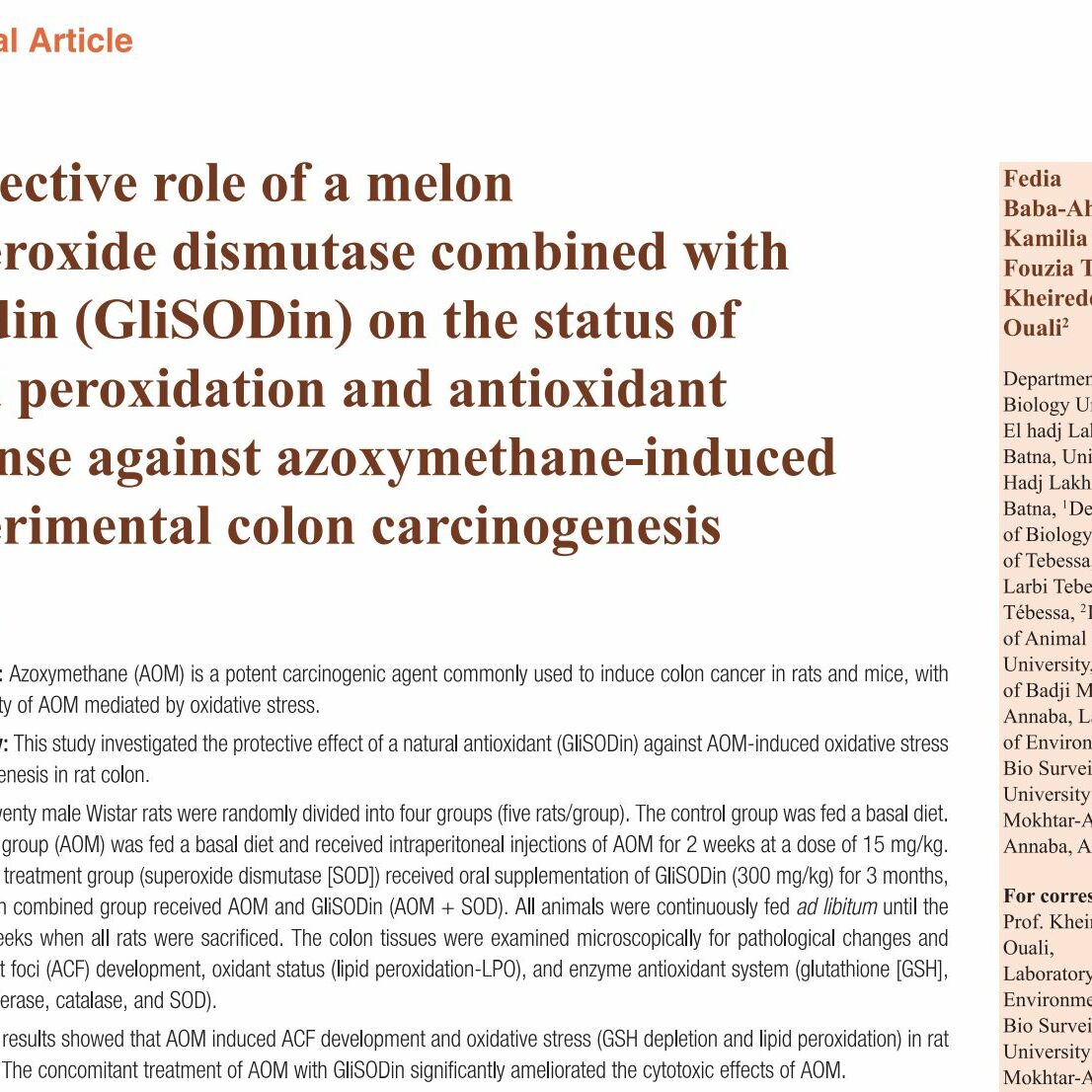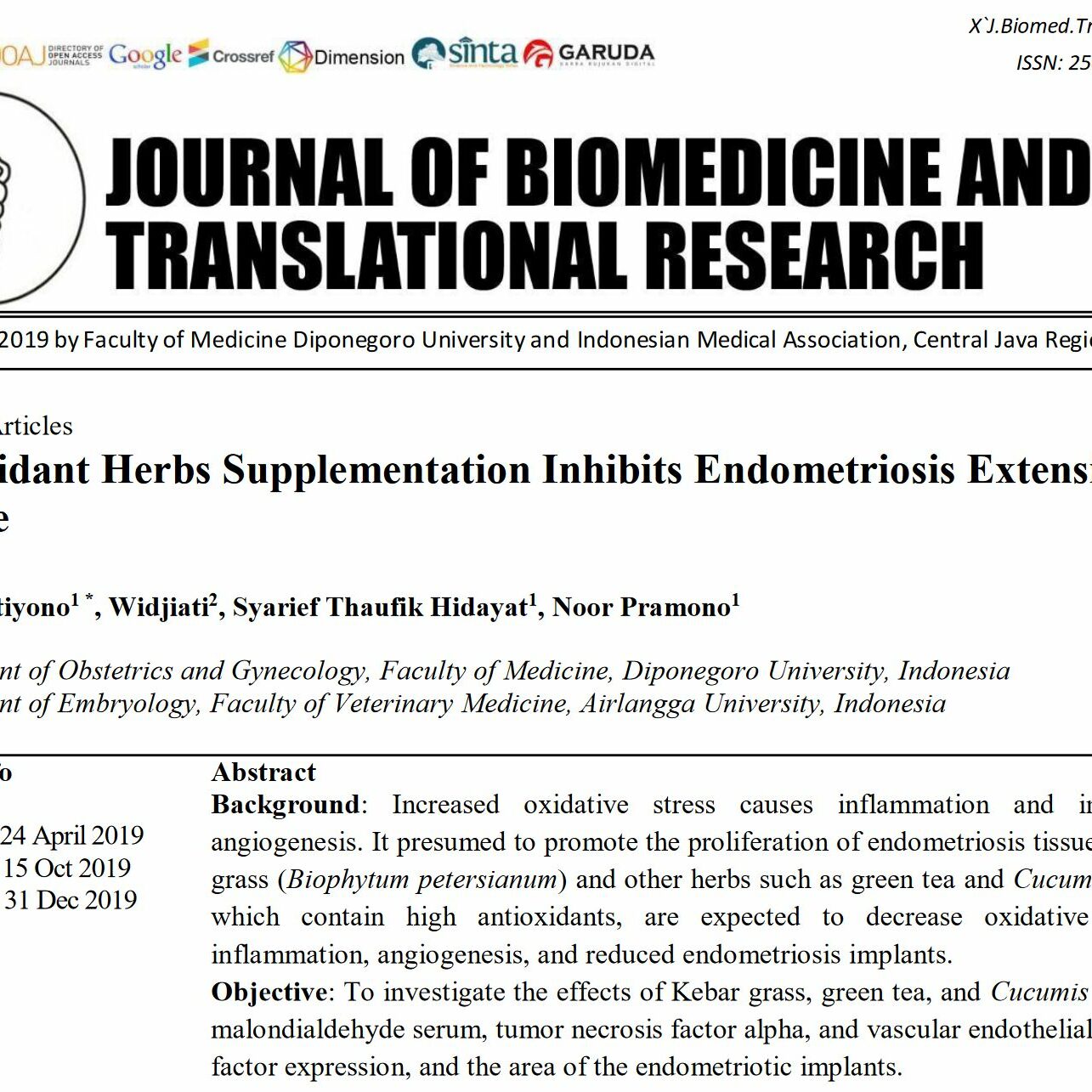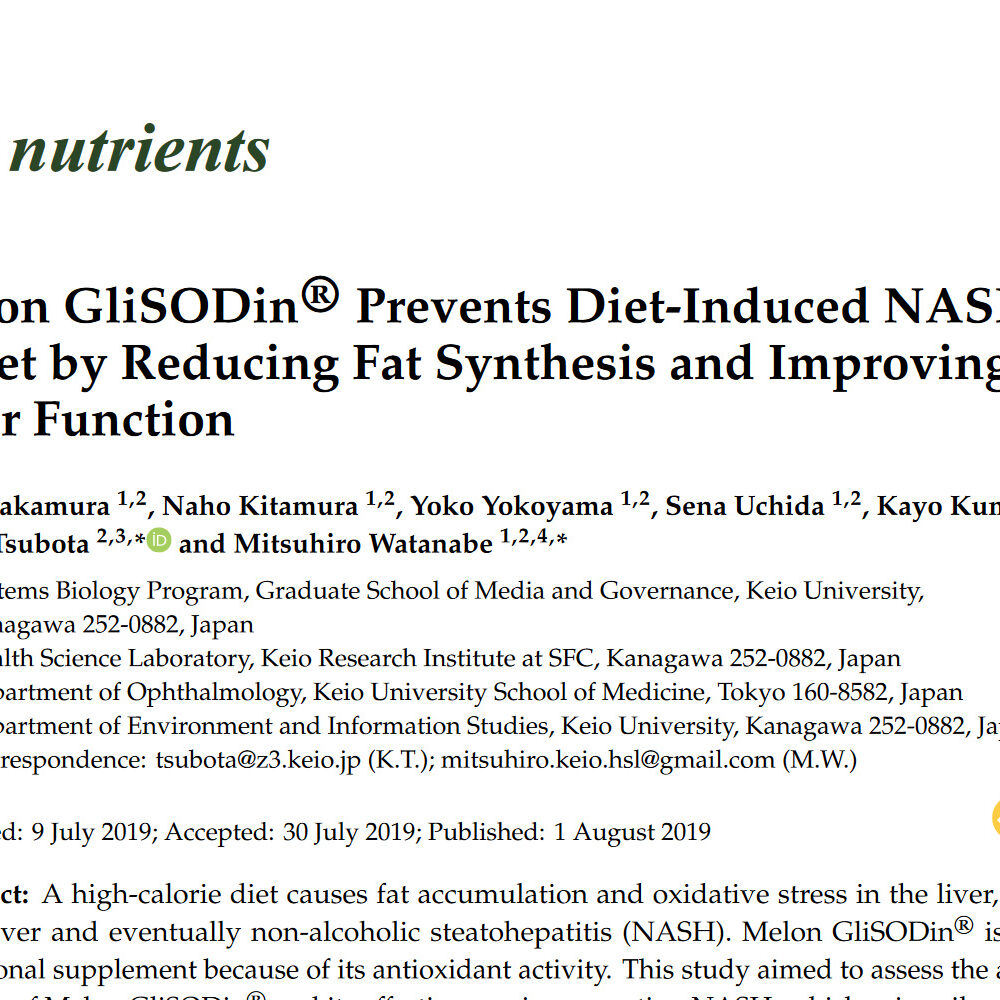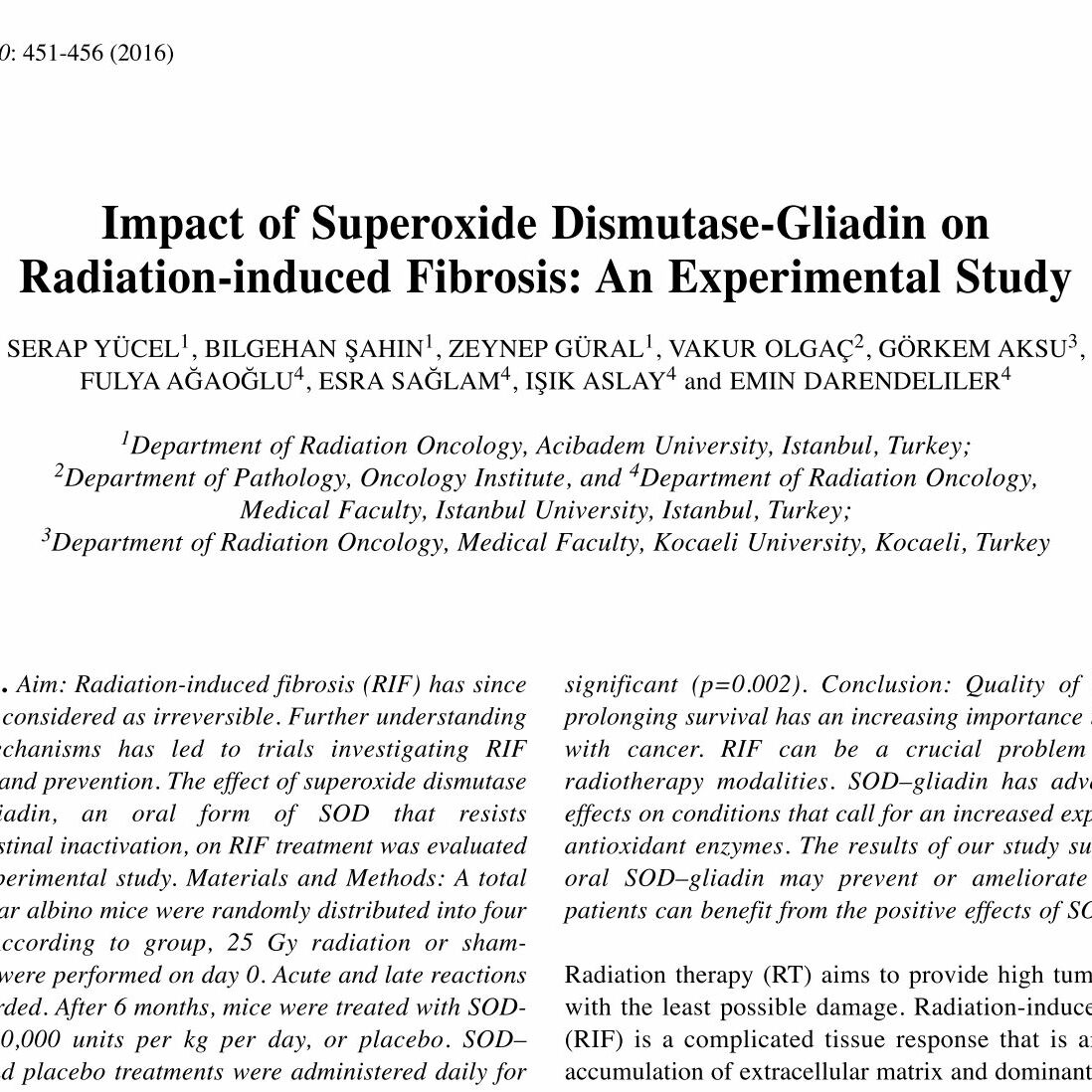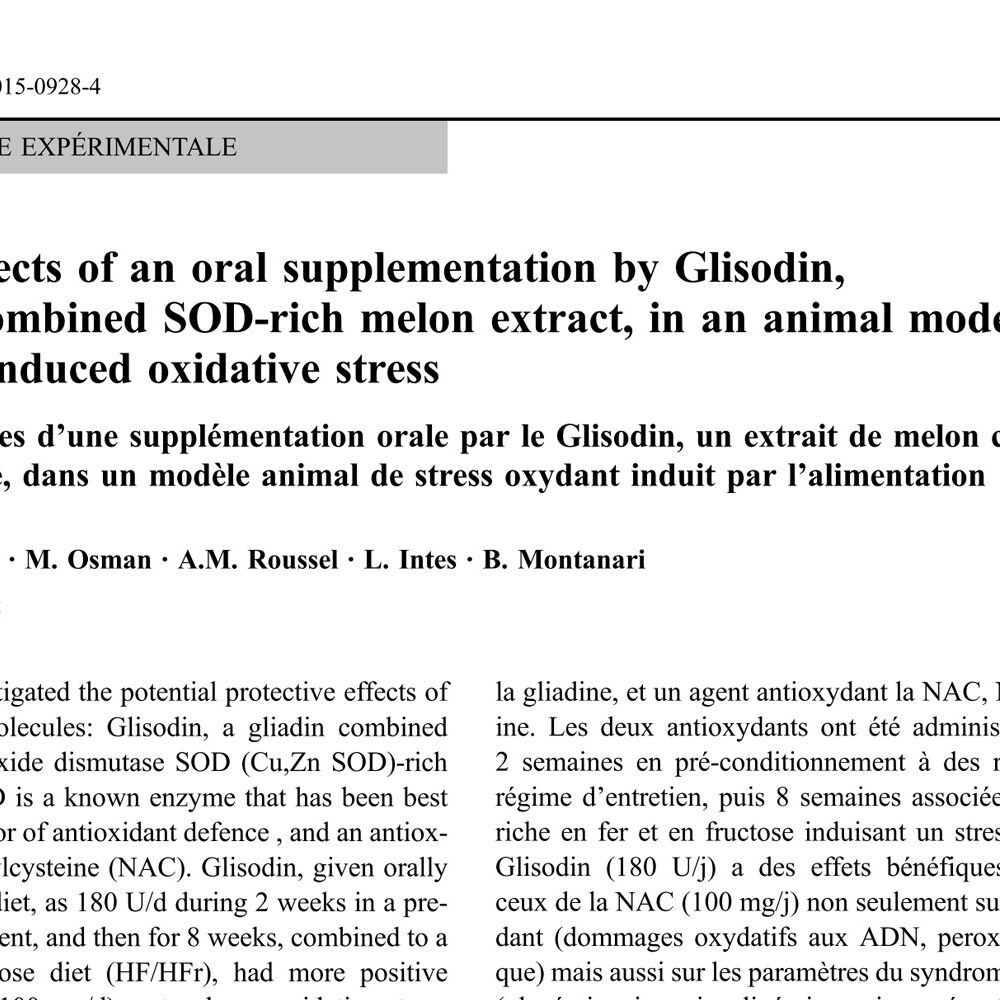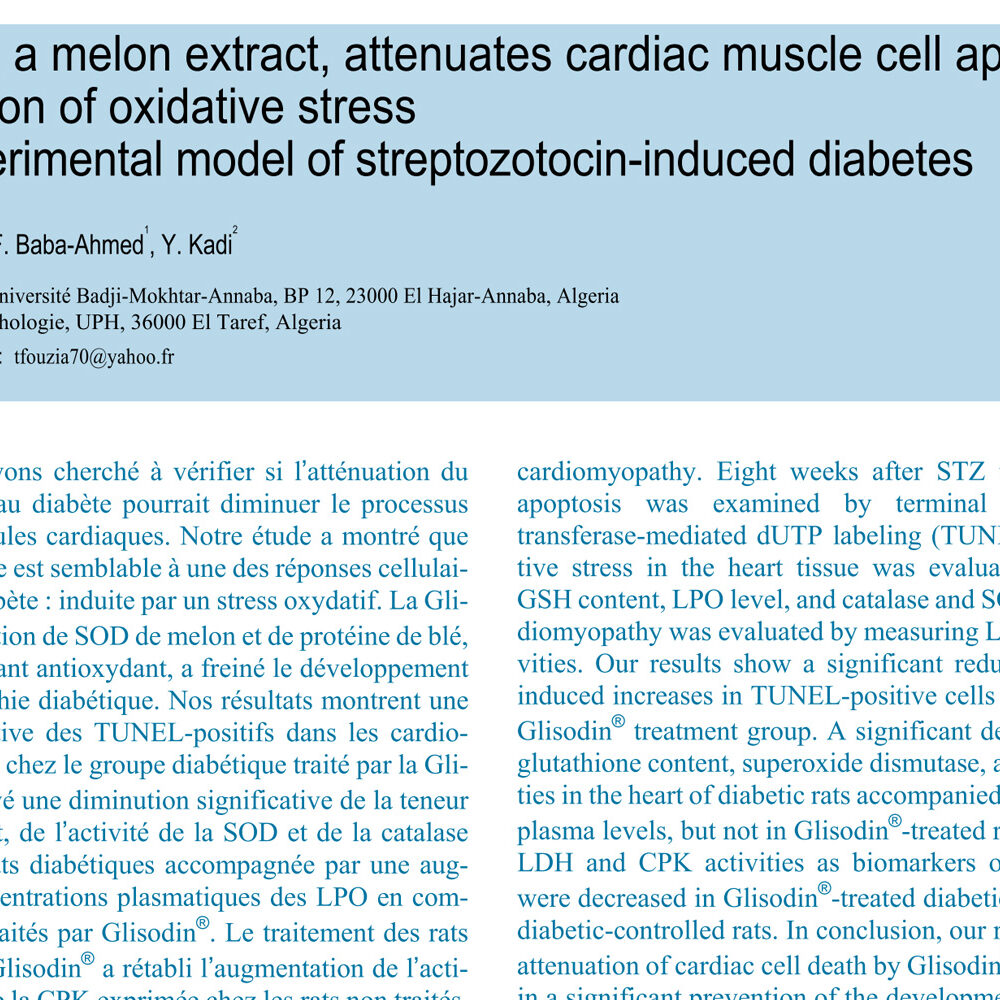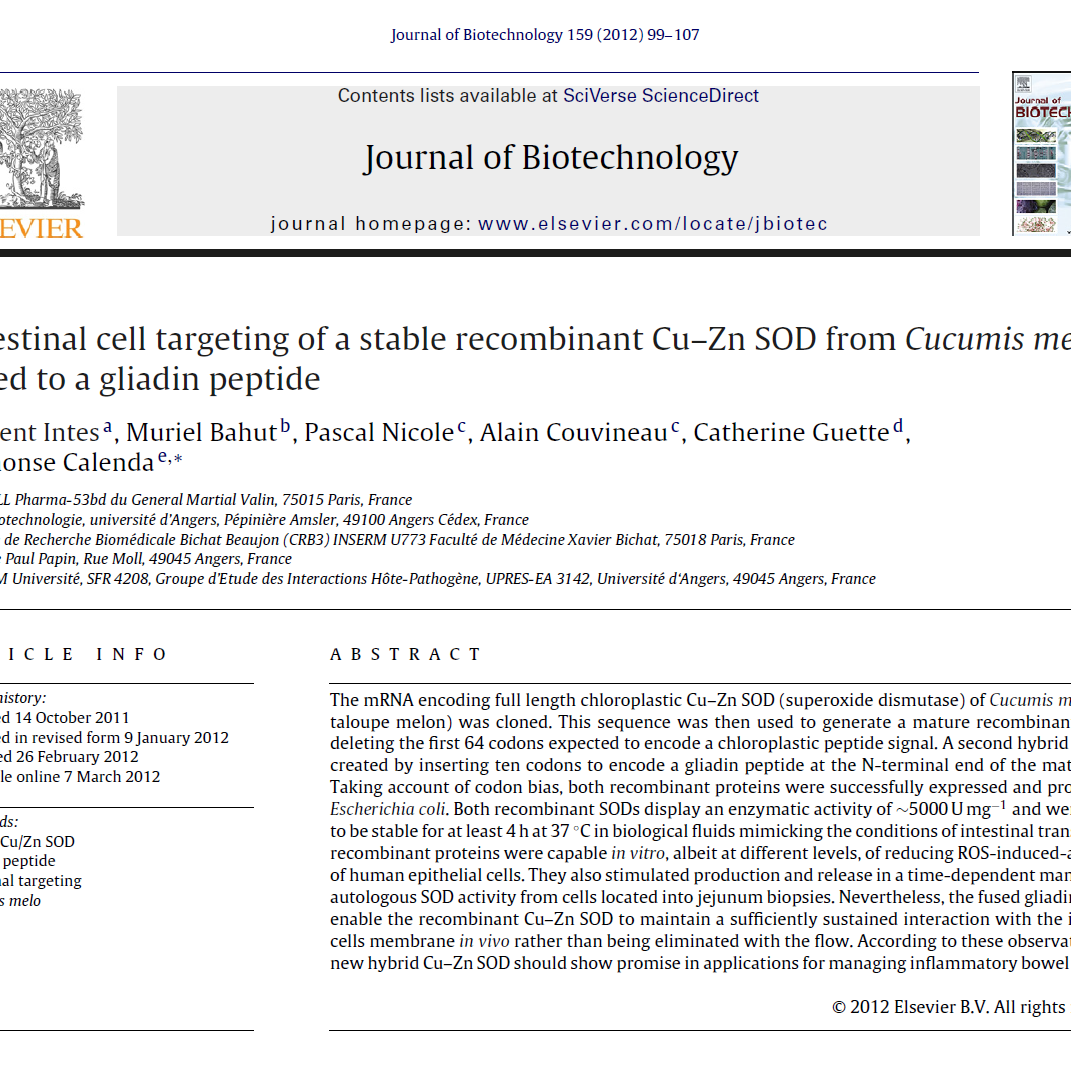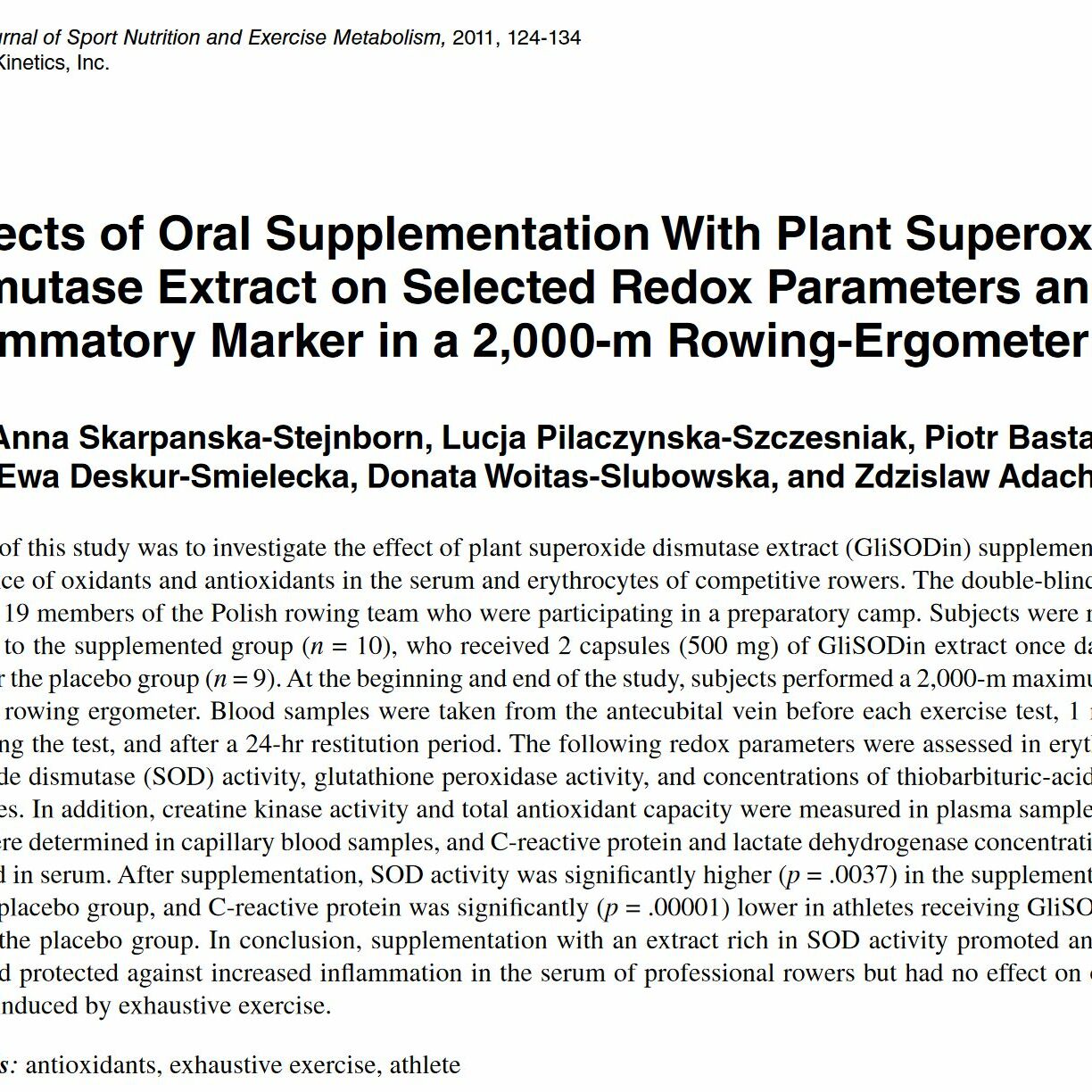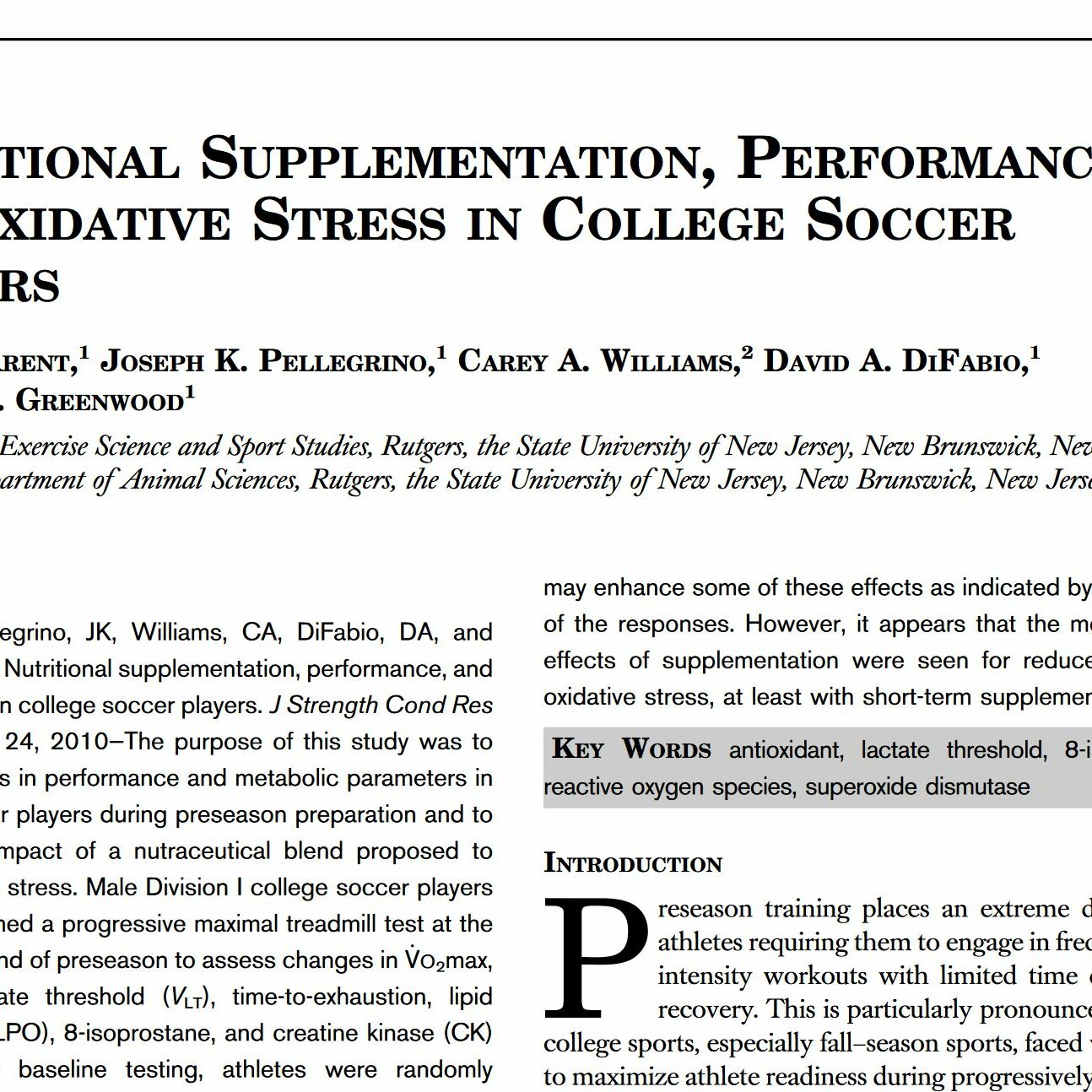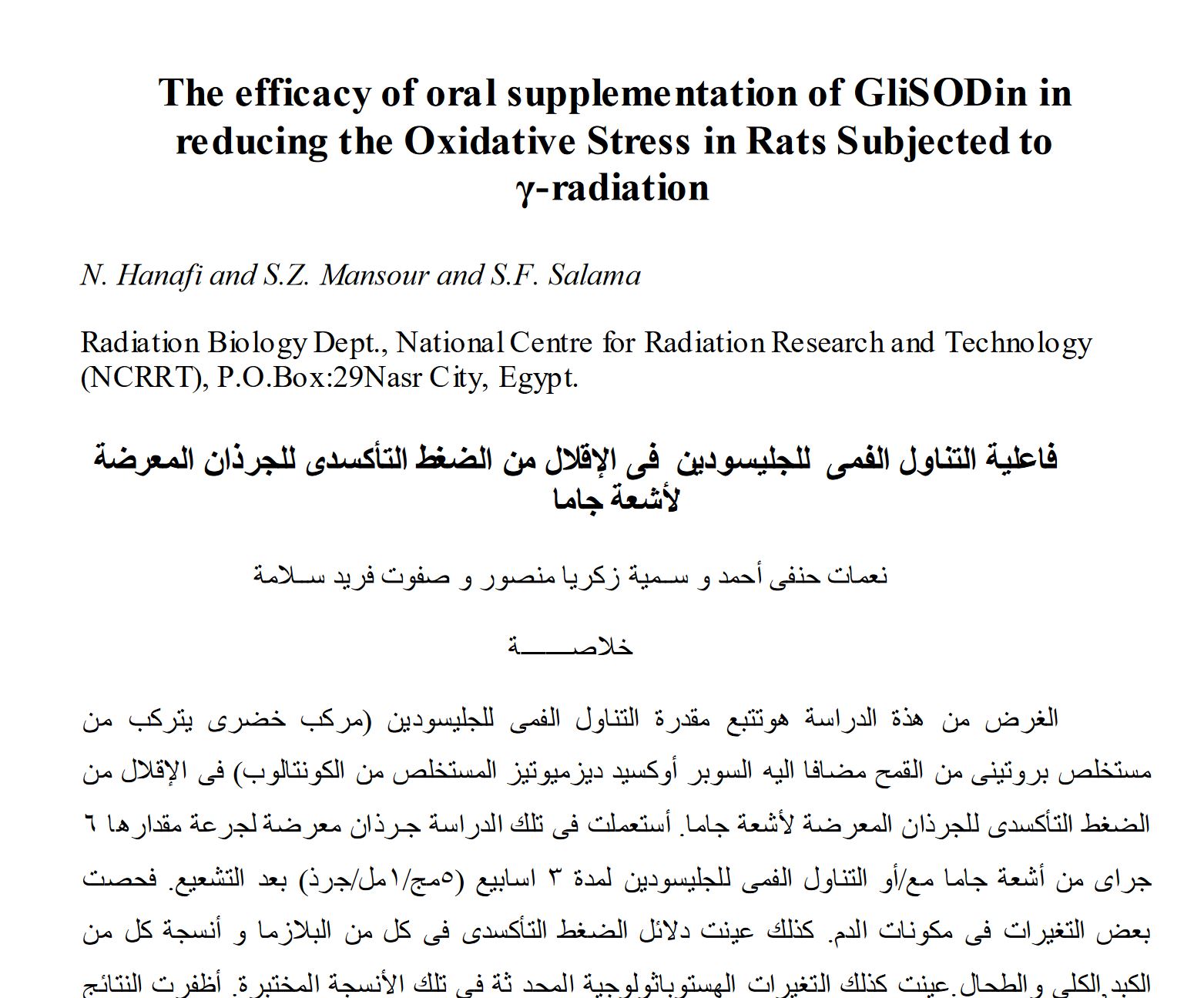
- Date: 2009
Abstract
In a prospective study we tested the effect of oral supplementation of GliSODin(100% vegetable compound comprised of gliadin, a wheat protein extract bound to superoxide dismutase derived from cantaloupe) in reducing oxidative stress inrats subjected toγ-radiation. Adult male Swiss albino rats were used in this study, exposed to 6 Gy of γ-radiation and/or oral gavagewith 5mg/ml/rat of GliSODinfor 3successiveweeks. Oxidative stress biomarkers were evaluated in blood plasma, liver, kidney and spleen tissues. Some of the haematological parameters were investigated.
Histopathological observations in tissueswere also detected.Afterγ-irradiation asignificant decrease in haemoglobin(Hb)content,red blood cellsRBCscountand haematocrite(Hct) levelwas recorded. Lipid peroxidation markers[malondialdehyde (MDA),lipid hydroperoxide (LHP) and conjugated diene (CD)]showed a significant increase. Histopathological examinations revealeda dangerous of alterations in liver, kidney and spleen tissues. However,GliSODin supplementation resultedina significant decrease in lipid peroxidation either alone or afterradiation exposure comparing to irradiatedgroup. The antioxidant defence enzymes including superoxide dismutase (SOD), catalase (CAT)activities andreduced glutathione (GSH) contentrecorded a significant increase comparing to irradiated group.Histopathological examinations showed a melioration of radiation-induceddamage. As a result, GliSODin could be considered a foodsupplementinthetrials of minimizing oxidativestressdisordersdue to radiation exposure.

